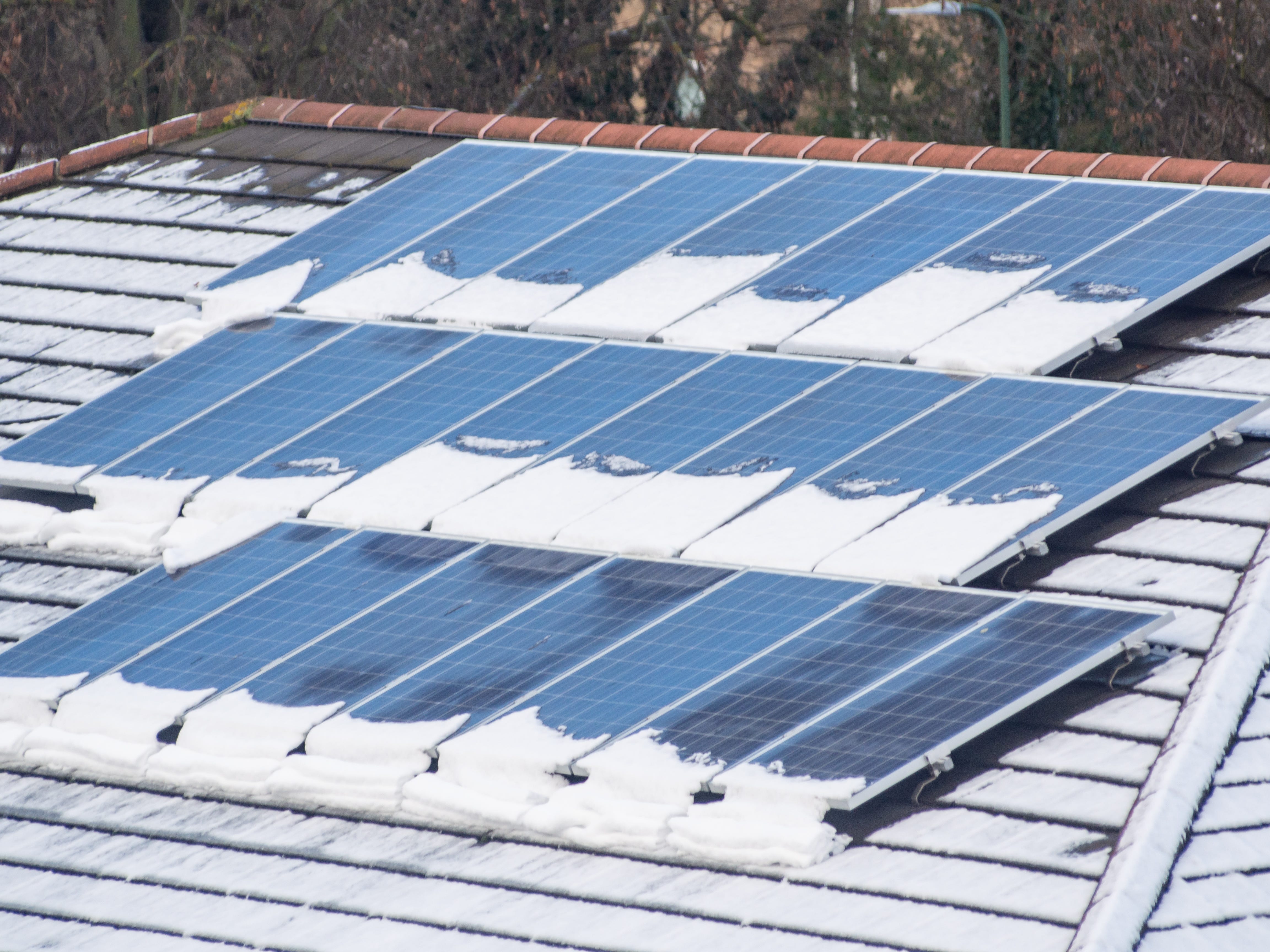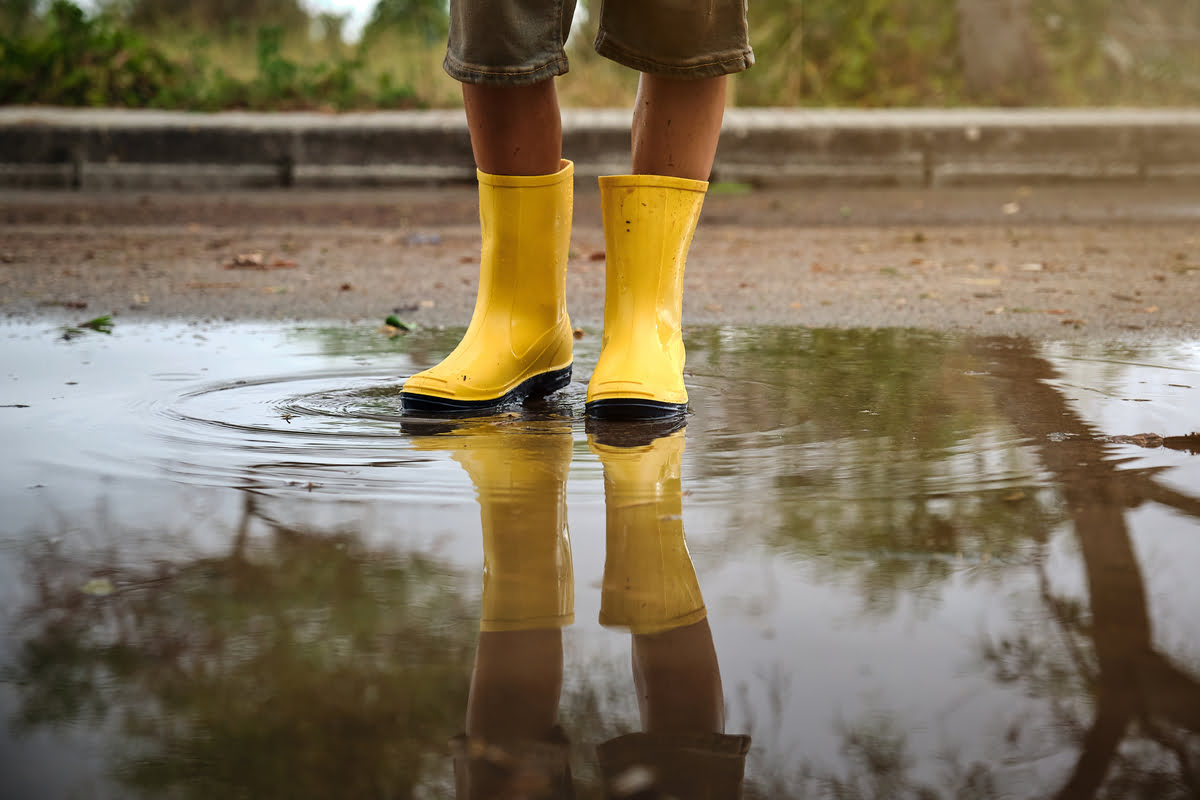
Darren Lehane/Getty Images
Installing solar panels on your home can be an excellent way to save on your electricity costs and reduce your carbon footprint. But as you enter the winter months, you might wonder whether you’ll still see the benefit of your solar panels.
The good news is that while it might be colder outside and there are fewer daylight hours, your solar panels can still capture sunlight and turn it into energy for your home. However, your solar panels will require some special care during this time. Keep reading to learn how to prep your solar panels for winter and how to maintain them during the winter months.
Read more: I bought a half-kilowatt of solar energy for $9 in under ten minutes
Adjust the angle of your panels
The angle of the sun during the winter is different than during the summer. As a result, you’ll have to adjust the angle of your solar panels to make the most of them during the winter.
Because the sun is lower during the winter than in the summer, you’ll want your panels at a steep angle during those months. As an added perk, not only will a steeper angle help to capture more sunlight, but it will also help the snow to more easily fall from your panels. Talk to your solar panel provider about your options before you make any adjustments.
Reduce your energy usage (or prepare to pay more for electricity)
Solar panels can still capture sunlight and create energy for your home during the winter. But because there are fewer daylight hours, you can also expect your solar panels to produce less energy than they might during the summer. As a result, you may either need to reduce your energy usage or prepare to pay a higher electricity bill. The good news is that there are plenty of ways to reduce your energy usage, including:
- Switch to energy-efficient light bulbs. They last longer and perform better. In general, a 60-watt traditional lightbulb can be replaced with a 15-watt energy-efficient bulb.
- Turn off lights and appliances you aren’t using. While most of us know we’re wasting energy when we leave these things on, we forget that it actually impacts our wallets.
- Unplug small appliances you aren’t using. Even when they aren’t in use, they can use a small amount of electricity, which adds to your energy bill.
- Turn down your thermostat. You can save money by turning the temperature in your home down a few degrees. Wear layered clothing to make yourself more comfortable.
- Check your home’s insulation. If your home has poor insulation, more heat will escape, which will cost you money.
Properly insulate your batteries
You’ll want to take special care of your solar batteries during the winter to ensure they continue to perform. It’s important to keep your batteries at an appropriate temperature. Batteries aren’t meant to work in the very low temperatures that some regions experience. As a result, you should either store your batteries indoors or ensure they are well-insulated.
If you keep your batteries outdoors, monitor the temperature to ensure it’s in the optimal range.
Watch your battery discharge
It’s also important to watch your battery discharge levels. It’s not recommended that you completely discharge your solar batteries. In fact, while some batteries may be suited for discharge levels of 70% to 80%, the recommended discharge level is actually 50%. On high usage days, as you may be likely to have in the winter, keep an eye on your battery discharge and consider investing in a backup generator.
Remove heavy snow from your panels
If you live in an area that gets snow, it’s natural that some will land on your solar panels. And that’s not necessarily a bad thing. Light snowfall is likely to melt fairly quickly. And there may actually be some benefit to snow on your solar panels since it can clean your panels as it falls off.
While some snow on your solar panels is fine, watch out for excess snow. Solar panels that are covered in snow simply won’t capture sunlight in the same way. Additionally, heavy snow can result in too much weight on your solar panels, putting stress on the mounting points.
If you are going to clean snow off your solar panels, be sure to use the right tool. A rough brush or rake can damage your solar panels. Instead, use a soft snow brush that will clean the snow off without scratching the surface of your panels.
The bottom line
The good news is that your solar panels can still capture sunlight and create energy for your home during the winter months. They may simply require a bit more care and maintenance leading up to and during winter.
Keep reading to learn more about solar panels for your home:





